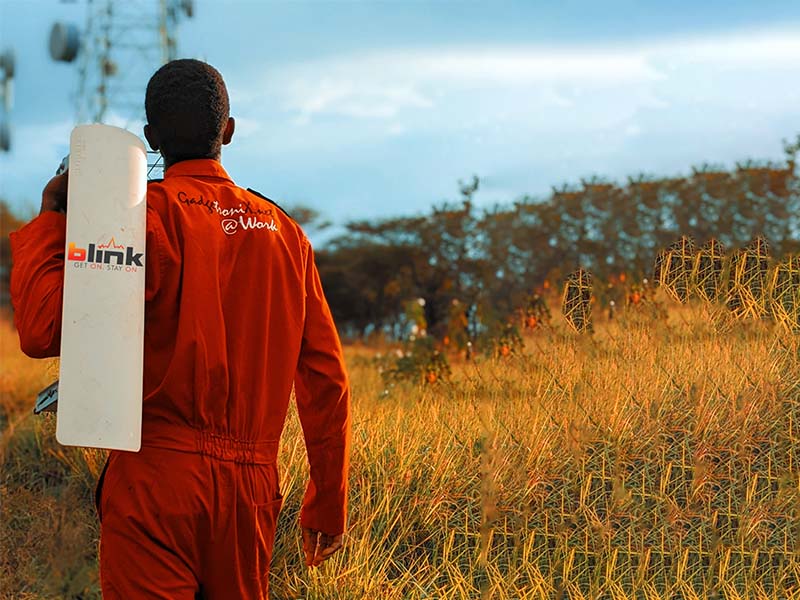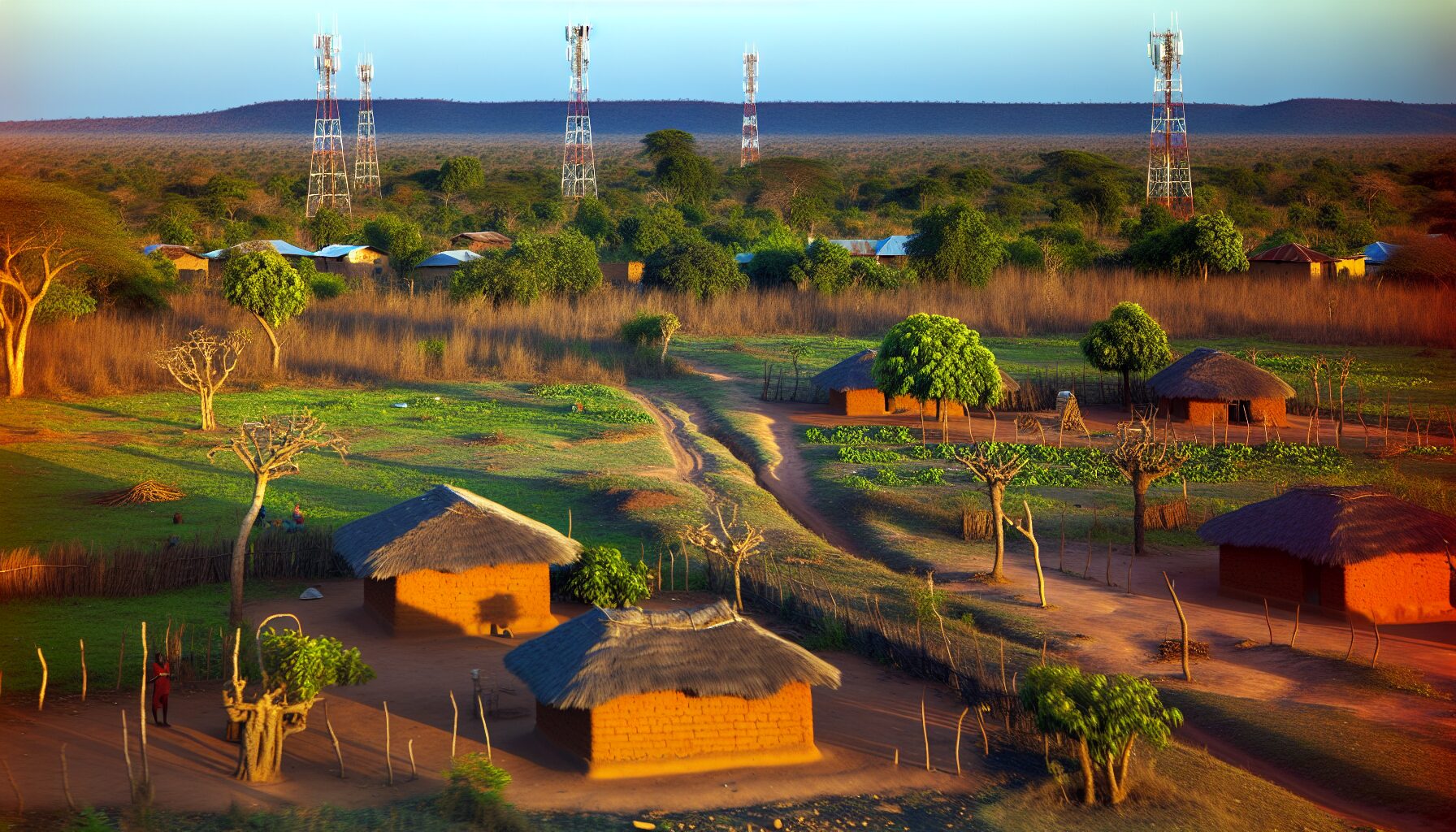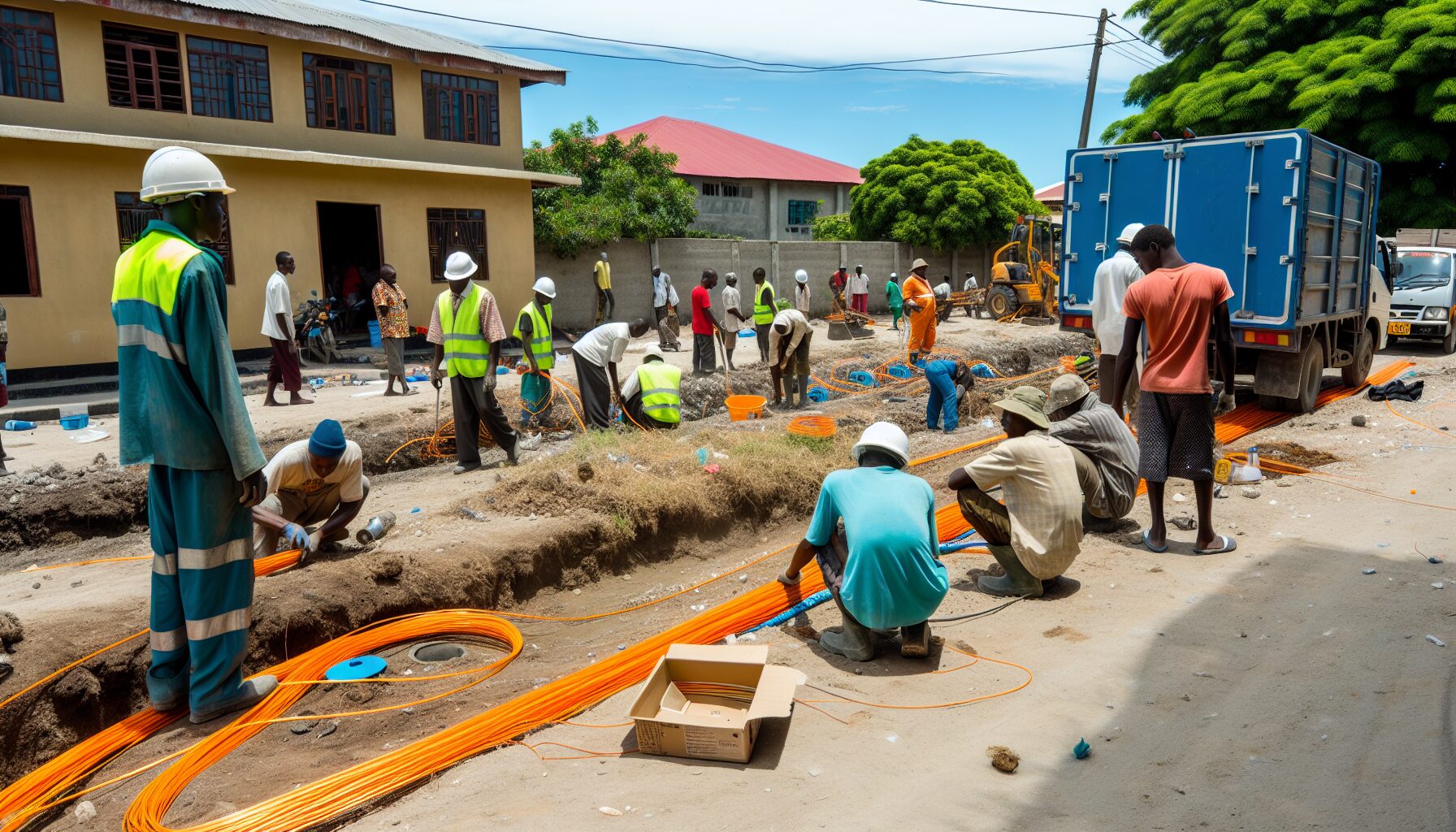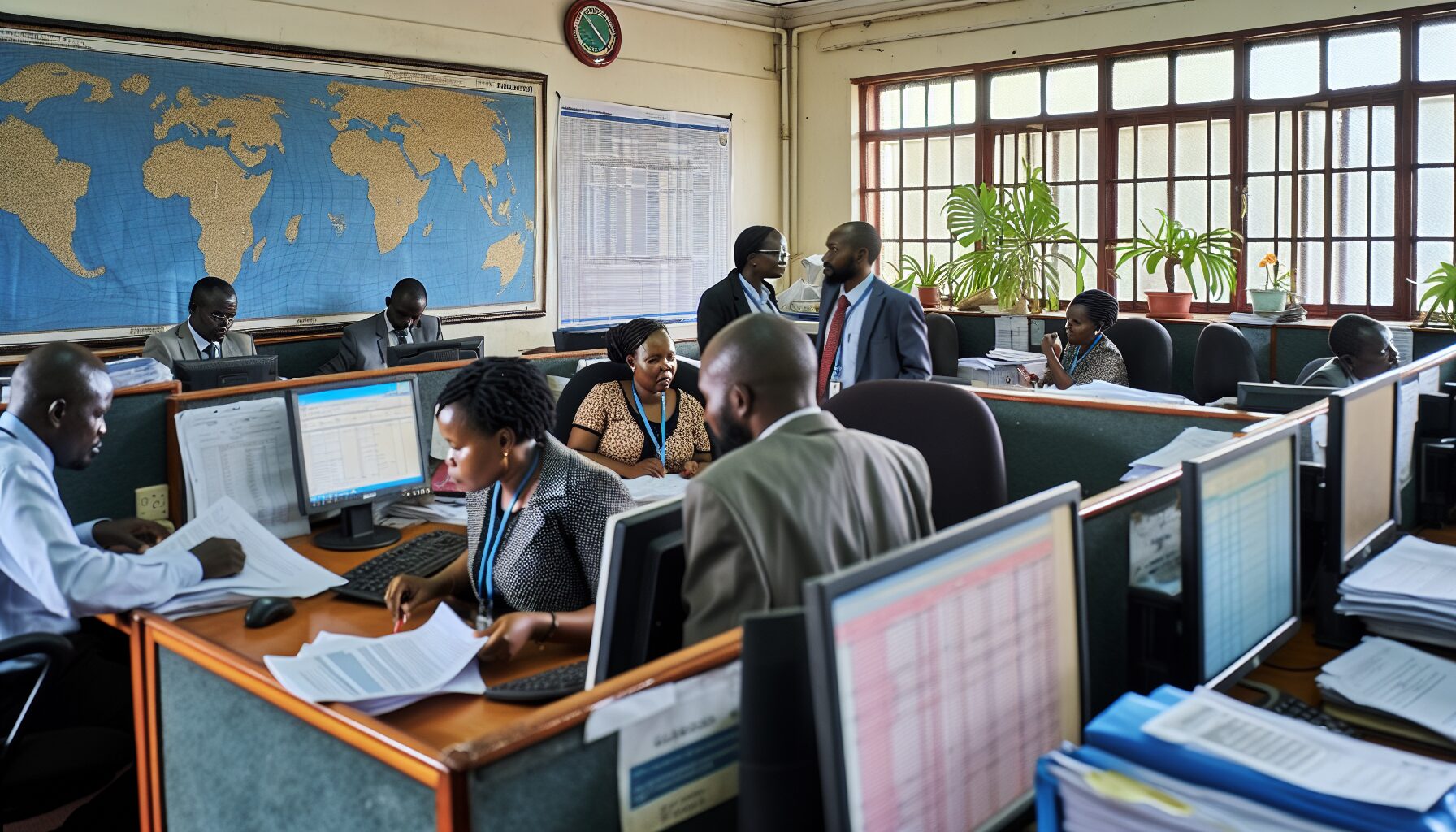
Where does Tanzania stand with its telecommunications solutions? This article answers that central question by examining the sector’s key contributors, such as Gadgetronix, and the evolving regulations redefining its trajectory. Join us as we dissect the telecom solutions in Tanzania that are bridging gaps in connectivity, enabling digital inclusion, and propelling the nation’s growth.
Gadgetronix has played a significant role in advancing Tanzania’s telecomlandscape, providing crucial services in solar energy, security, telecom solutions, and team collaboration with its advanced radio solutions and installation services.
The Tanzanian telecom industry is marked by a vibrant ISP ecosystem, with initiatives aiming to significantly expand broadband services and rural interconnection, driven by collaborations among major stakeholders including the government, MNOs, and organizations like GSMA and USAID.
Tanzania’s telecommunications growth is heavily influenced by its regulatory framework, with the Integrated Licensing System encouraging competition and investment, and the Cybercrimes Act legislating online content and impacting telecom companies’ operations and security measures.

The telecommunications landscape in Tanzania has grown remarkably, with Gadgetronix playing a significant role. Overseen by the Tanzania Communication Regulatory Authority, Gadgetronix has been a leading distributor since 2014, with a special focus on Solar, Security, and Communication. With significant contributions to Solar Energy, Security, and Telecom solutions, Gadgetronix has been instrumental in enhancing sustainable living, safety, and electronic and postal communications in Tanzania.
Its advanced radio solutions, designed to facilitate rapid and dependable communication, have revolutionized team collaboration, allowing for quick decision-making and enhancing overall productivity.
Gadgetronix’s installation services encompass a wide array of devices. The company’s installation process for routers, for instance, is meticulously planned, ensuring seamless telephone services. It begins with the following steps:
Connect the router to the modem using an Ethernet cable.
Follow the setup instructions provided by the manufacturer.
Verify each connection to ensure optimal router functioning before completing the installation.
But routers are just the tip of the iceberg. Gadgetronix’s installation services extend to a wide range of devices including ISPs, antennas, and IP phones. While specific information about these services may not be readily accessible in the competitive telecom market, direct contact with Gadgetronix can provide comprehensive details about these services. This commitment to customer service ensures that Gadgetronix’s clients receive the best possible support and guidance.
Radio solutions are another key aspect of Gadgetronix’s offerings. They play a pivotal role in enhancing safety and boosting productivity in Tanzania. By improving communication and safety protocols, Gadgetronix’s radio solutions enable more efficient work practices, which are essential for mobile operators. Moreover, these solutions are known for:
their comprehensive security and surveillance systems
user-friendly interface
extensive array of features
seamless integration
Gadgetronix offers a diverse selection of radios, including renowned brands like Motorola, I-com, and Kenwood. These solutions have been effectively utilized in various locations and organizations. For instance, Kimarishe Serengeti Lodge and DHL Tanzania, a key player in postal communications, have benefited significantly from Gadgetronix’s radio solutions. These real-life applications showcase the effectiveness and reliability of Gadgetronix’s offerings.
Gadgetronix’s solutions, more than just products, aim to boost team collaboration and maintain peak productivity across different industries in Tanzania. By leveraging infrastructure, high-speed internet, and radio technologies, Gadgetronix provides a platform for more effective team collaboration. This approach enables teams to concentrate on operations and ensures that all individuals work at their peak performance.
Furthermore, Gadgetronix facilitates team Linkage through the implementation of top-tier communication solutions, which are supported by international submarine cables. The renewable energy industry, specifically the solar power sector in Tanzania, derives the greatest benefit from Gadgetronix collaboration solutions.

The Tanzanian ISPs landscape is undergoing rapid changes. Initiatives like Digital Tanzania, in collaboration with mobile network operators, are extending broadband services to reach over 8.5 million Tanzanians across 713 wards. Dominating the ISP market are companies such as:
Vodacom, which has the broadest coverage in the country
Airtel
Tigo
Zantel, which provides the best coverage in Zanzibar
Halotel
Amidst such competition, TISPA and Blink hold a distinct place; while TISPA is focused on enhancing internet accessibility for a majority of Tanzanians, Blink specializes in delivering valuable interconnection through high-quality, cost-effective internet services.
Rural interconnection is a key area of focus in Tanzania’s telecom sector. Several initiatives, such as the Tanzania Rural Electrification Expansion Program (TREEP), are underway to facilitate household grid connections, improve technical capabilities, and construct new communication towers. As of March 2023, an estimated 53.5 percent of the population in Tanzania’s rural districts had access to the internet. The Government of Tanzania has set ambitious targets to increase rural connectivity to 50% by 2025 and ultimately to a minimum of 75% by 2033.
The expansion of rural Linkage in Tanzania is a collective effort, driven by major stakeholders including:
GSMA
Airtel
Millicom
Vodacom Tanzania
the Tanzanian government
the World Bank
Their collaborative efforts are instrumental in bridging the digital divide and bringing the benefits of Linkage to the farthest corners of the country.
In the competitive landscape of ISPs in Tanzania, each player brings a unique value proposition. Companies like:
Vodacom
Tigo
Airtel
Zantel
Halotel
We offer a wide range of innovative services aimed at empowering individuals, businesses, and communities, addressing e services and facilitating their success in the digital era, including those tailored for financial institutions.
Blink, on the other hand, is carving a niche by providing value-driven interconnection. Its custom data plans and VPN service, among other offerings, contribute to delivering valuable connectivity throughout the nation.

Mobile Network Operators (MNOs) leading the charge for digital inclusion in Tanzania include:
Vodacom
Tigo
Airtel
Zantel
TTCL
Halotel
With extensive coverage spanning the length and breadth of the nation, these MNOs are serving a broad customer demographic.
These operators are entering strategic collaborations with the government to reach a target of 80% broadband penetration by 2025, with a focus on diminishing the Technological divide and enriching interconnection in underserved regions.
Coverage and accessibility are the hallmarks of Tanzanian MNOs. Currently, the extent of 3G mobile coverage is 83%, while 4G mobile coverage stands at 74%. This extensive coverage, coupled with a significant increase in mobile subscriptions, has ushered in a new era of Communication in Tanzania.
In Tanzania, smartphone usage is increasing, particularly in the 25-34 age group, which makes up 73.7% of all smartphone users. The implementation of mobile money services has further enhanced the accessibility of telecom services, extending access to mobile phones and communication services to a larger population, especially the urban poor who face challenges in accessing conventional financial services.
MNOs in Tanzania are not just service providers; they are innovators. Significant collaborations between Tanzanian mobile network operators and technology firms are transforming the telecommunications landscape. Some notable partnerships include:
Wakandi’s partnerships aim to introduce Electronic financial services to the informal economy
Collaborations between MNOs and banks cater to diverse needs
Tigo Tanzania and Ericsson’s partnership aims to introduce 5G and enhance the current 4G network
These partnerships are driving innovation and improving interconnection in Tanzania.
These partnerships and innovations have a substantial impact on the telecom industry in Tanzania. They facilitate Technological transformation, foster economic expansion, and enhance interconnection throughout the country, thereby playing a vital role in the overall development of the nation.

The expansion of broadband and introduction of fiber optic initiatives are reshaping the telecommunications scene in Tanzania. Public-private collaborations are driving the development of Technological infrastructure, leading to an increase in fixed broadband lines and internet subscriptions. These initiatives have improved communication, strengthened the digital economy, and provided communities with faster internet speeds.
As a result, there has been a significant positive impact on business growth, laying the groundwork for economic growth, innovation, and community development.
In Tanzania, public-private collaborations play a key role in enhancing the broadband infrastructure. The Digital Invest Program, supported by USAID, has established new partnerships to bolster digital finance and Internet Service Providers (ISPs). Additionally, collaborations involving GSMA and the government focus on expanding mobile broadband access to rural regions. As a result of these initiatives, there has been a notable enhancement in the availability of fixed broadband connections in the country. These collaborations have played a crucial role in the growth of internet subscriptions in Tanzania by expediting the development of Technological infrastructure and enacting beneficial changes through amendments to the PPP Act.
The Tanzanian government has played a significant role in enabling these collaborations by making amendments to the PPP Act. These amendments aim to simplify procedures and promote strategic projects that support the advancement of broadband expansion through public-private partnerships. Major stakeholders like USAID and the United States government are driving these initiatives, contributing significantly to the expansion of broadband in Tanzania.
The expansion of broadband and fiber optic networks in Tanzania is having a transformative impact on businesses and technology. Companies like Vodacom Tanzania have experienced significant benefits from these initiatives, as evidenced by their US$10 million infrastructure investment to improve interconnection in rural Tanzania. Investments in the fiber-optic network have contributed to the enhancement of data infrastructure, facilitating the growth of Technological activities, such as e-commerce.
Broadband expansion is closely correlated with the Technological transformation in Tanzania. The government’s support through the National Broadband Strategy and the Tanzania e-Government Strategy, coupled with the increased network coverage and high-speed internet enabled by broadband, are driving Tanzania’s economic growth. This growth is laying the groundwork for economic growth, innovation, and community development, setting Tanzania on the path to becoming a digital powerhouse.

The regulatory framework in Tanzania significantly influences the growth trajectory of the telecommunications sector. The Integrated Licensing System and the Cybercrimes Act are two key components of this framework. The CLF simplifies the Authorisation process for potential market entrants, promotes competition, attracts investment, and fosters innovation in the telecom sector.
On the other hand, the Cybercrimes Law regulates online content and criminalizes offenses related to ICT and computer systems, impacting the content transmitted by telecom companies and the security measures they are required to maintain.
Implemented by the Tanzania Communications Regulatory Authority (TCRA) in 2005, the Converged Licensing Framework (CLF) in Tanzania is a dynamic regulatory initiative under the Tanzania Communications Regulatory Act. Its aim is to ensure regulatory flexibility, address market competition, and foster the growth of a competitive mobile broadband market in Tanzania. The framework promotes fair competition in the telecommunication market by fostering a more competitive market environment and contributing to the reduction of prices.
In order to obtain a Integrated Authorisation System in Tanzania, a telecom company must possess a Network Facility License, Network Services License, Application Services License, and Spectrum Frequency Spectrum User Licence. The framework offers advantages to investors by creating a more competitive telecom market, reducing prices, and enhancing stability in the ICT sector. Additionally, it facilitates sector specialization for investors by providing flexibility for operators to leverage technological advancements.
In Tanzania, the Cybercrimes Act is a pivotal legislation that penalizes a range of cyber activities, including:
Data espionage
Child pornography publication
Pornography dissemination
False information dissemination
Production and dissemination of racist and xenophobic material
Initiation of specific content transmission
The Electronic Transactions Act also criminalizes offenses related to ICT and computer systems, such as computer-related forgery. It aims to address issues such as financial loss, fraud, and cyberbullying that have affected internet users.
However, the Act has also raised concerns regarding freedom of speech and press. The Cyber law significantly affects constitutional and international human rights, particularly in the areas of freedom of expression and information. It contradicts democratic values and is in violation of international human rights law on freedom of expression. This has implications for the telecom Firms in terms of the content they transmit and the security measures they need to maintain.
In conclusion, Tanzania’s telecommunications landscape is a dynamic blend of technology, innovation, collaboration, and regulation. From the pivotal role of Gadgetronix to the rise of Internet Service Providers and Mobile Network Operators, the sector is brimming with potential. The expansion of broadband and fiber optic networks, driven by public-private collaborations, are transforming the country’s digital infrastructure. However, the regulatory framework, including the Converged Licensing Framework and the Cybercrimes ligislation, presents its own set of challenges and opportunities. As Tanzania continues its Technological transformation journey, the telecom sector will undoubtedly play a crucial role in shaping the country’s future.
The biggest telecom companies in Tanzania include Vodacom Tanzania, Tigo Tanzania, and Airtel Tanzania. These are currently the leading players in the Tanzanian telecom market.
The 4 largest telecommunications companies are AT&T Inc, Verizon Communications Inc, China Mobile Ltd, and Deutsche Telekom AG. These Organisations are among the top 5 telecom operators in the world by revenue as of 2021.
Vodacom is recommended for best mobile network coverage in Tanzania, followed by Airtel as a good runner up. Tigo has also won the Ookla Speedtest Award as the Fastest Mobile Network in Tanzania for 2023.
Gadgetronix offers telecommunications solutions focusing on team collaboration and work optimization across various industries in Tanzania.
The Converged Licensing System in Tanzania simplifies the Authorisation process, promotes competition, attracts investment, and fosters innovation in the telecommunications sector.
